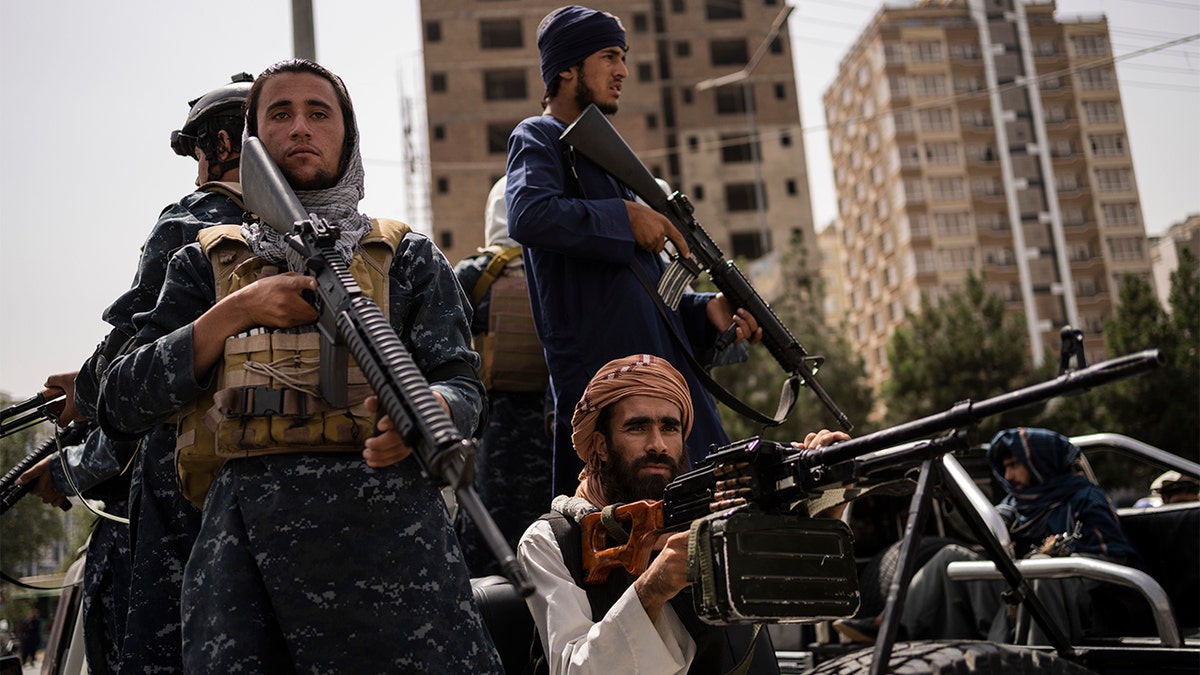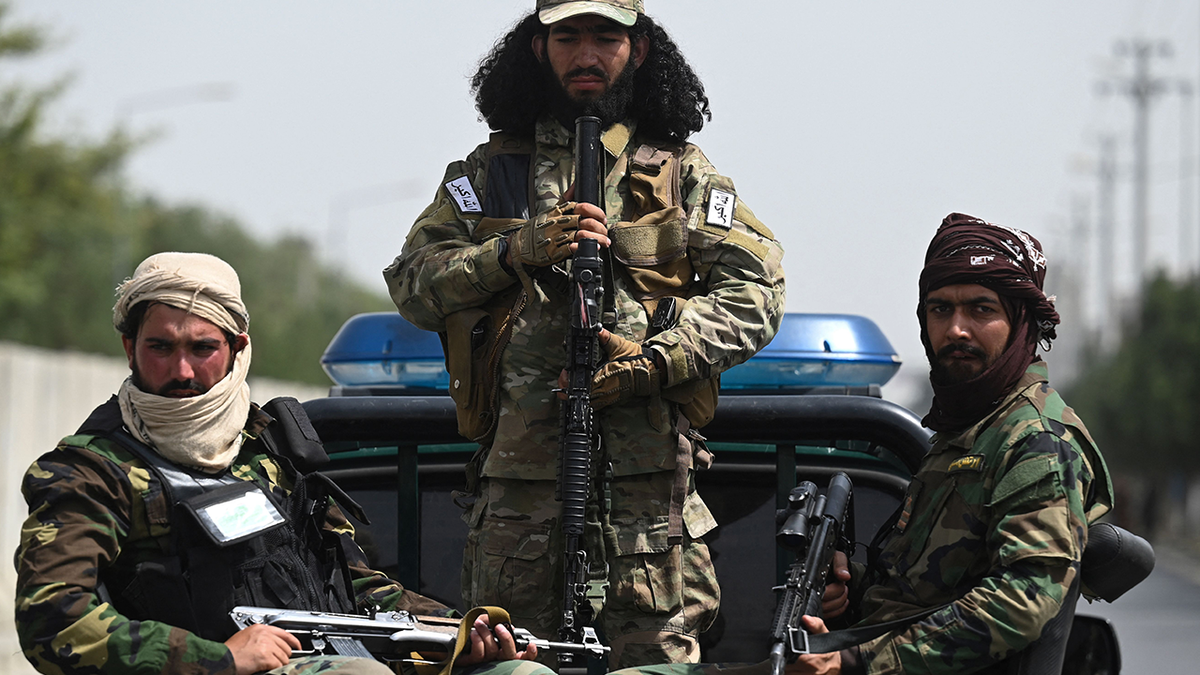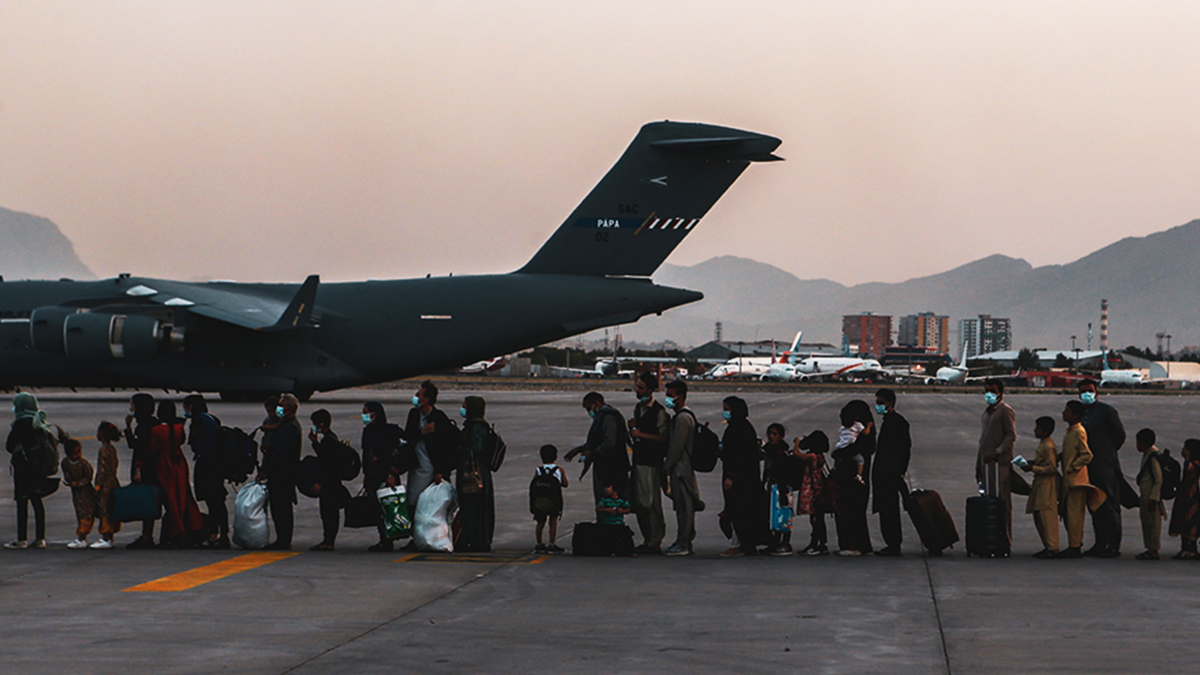Some Afghan refugee non-profits hope for more government help to resettle allies
Thousands of people in Afghanistan are still struggling to evacuate after the United States withdrew troops nearly six months ago. But for the Afghan people who are already here in the states, they’re dealing with a new culture, language, and the guilt of leaving behind those they love.
Jacksonville, Florida – Thousands of people in Afghanistan are still struggling to evacuate after the United States withdrew troops nearly six months ago. But the Afghan people who are already here in the States are dealing with a new culture, language, and the guilt of leaving behind those they love.
Life seems brighter for Afghan refugee Kaihan and his family in Jacksonville, Florida. The nonprofit Save our Allies helped connect Kaihan with a sponsor to cover his living expenses for a year.
"I am lucky I am still here with my family and my daughter, but there are some people that were left behind," Kaihan told Fox News.
He spent years as an interpreter for American troops until the Taliban took over the country.

Taliban fighters escort women march in support of the Taliban government outside Kabul University, Afghanistan. (AP Photo/Bernat Armangue)
BIDEN'S FIRST YEAR: THE PRESIDENT'S BIGGEST BLUNDERS
"Life in Afghanistan right now, there is no life," Kaihan said.
Kaihan says people who helped American troops are still in hiding.
"Taliban never changed. Who said they changed? They were a big lie. They are lying to you. They are lying to us," Kaihan said. "People are starving. People are dying. They don’t have food or anything."
Former U.S. Army infantry officer Nick Palmisciano helped evacuate people in Kabul. He is on the board for Save our Allies, which was born out of the need to help allies fleeing Afghanistan.
"We basically worked nonstop for 10 days and evacuated 12,000 people," Palmisciano told Fox News.

Armed Taliban fighters stand guard atop a vehicle as veiled women march during a pro-Taliban rally outside Shaheed Rabbani Education University in Kabul on September 11, 2021. ((Photo by AAMIR QURESHI/AFP via Getty Images))
Palmisciano says the biggest issue they face is the public forgetting about them.
"It is not the right thing. It is un-american. To forget about the people that fought alongside us and pretend that we have completed the mission because we have not," Palmisciano said.
The International Institute of Minnesota tries to help refugees learn English and get jobs once they’ve made it to this country.
"I don't think in the 30 years I've been here that I've seen such a busy time," Jane Graupman, the institute's executive director, said.
Since September, Minnesota has welcomed 721 afghan evacuees according to the Minnesota Department of Human Services. Many are filling vital jobs left open by the labor shortage.
"We’ve resettled a few physicians, engineers, IT experts and so they're really working across sectors in our community," Graupman said. "Which is really great for our community, because as everyone knows, there's a high need right now for employees."

Evacuees wait to board a Boeing C-17 Globemaster III during an evacuation at Hamid Karzai International Airport, Kabul, Afghanistan, Aug. 23, 2021. (U.S. Marine Corps photo by Sgt. Isaiah Campbell)
The Save Our Allies organization said that many of the resettlement agencies that have contracts with the U.S. government try their best, but their assistance only goes so far, sometimes the money and help only last refugees a few months. They’d like to see more of an effort from the government to help these refugees, many of whom risked their lives for American troops.






















